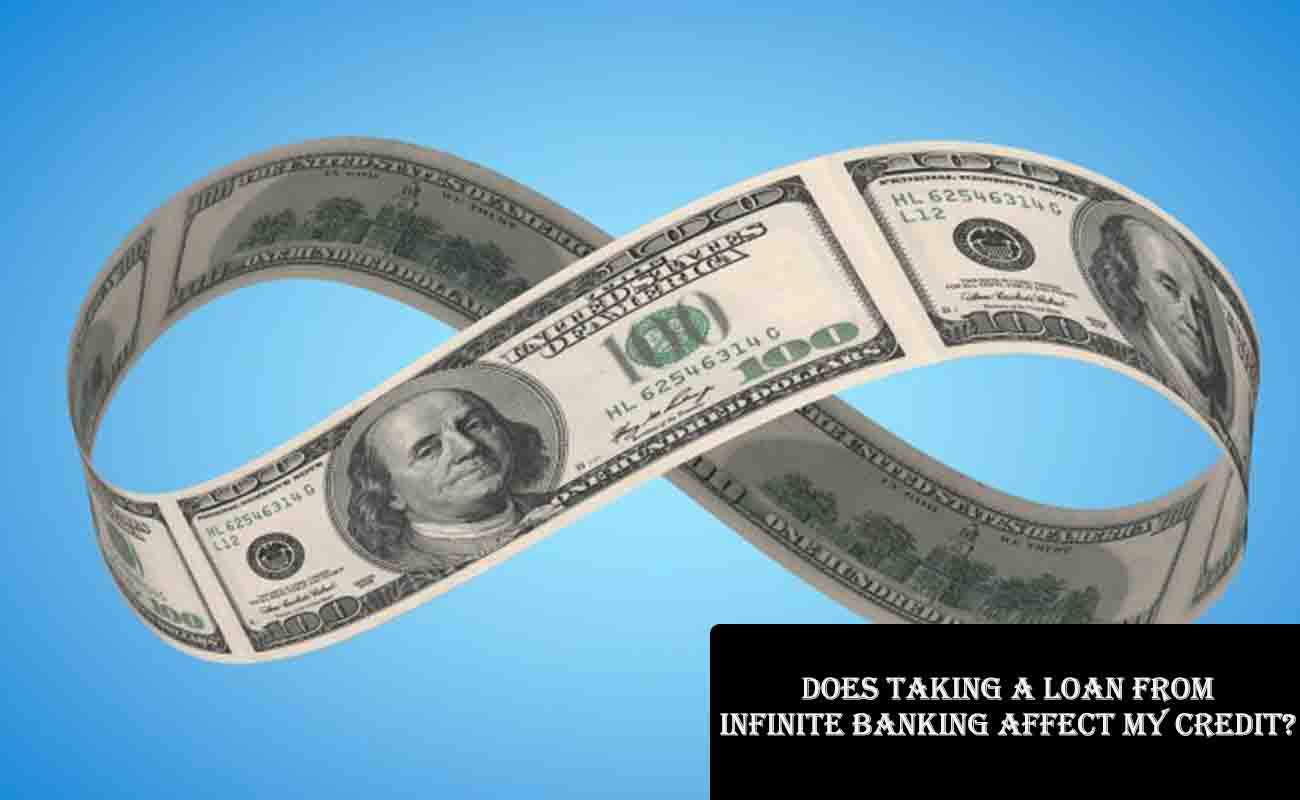Does Taking a Loan from Infinite Banking Affect My Credit? Infinite banking is a remarkable financial technique that has captivated the imagination of many individuals, including me. If you’re studying this topic, you might wonder: “Does taking a loan from Infinite Banking affect my credit?” This is a useful and important question, particularly if you want to keep or increase your creditworthiness. I’ll walk you through everything you need to know, making it as simple as possible by fusing my personal experience with an understandable explanation.

Self-directed whole life insurance plans utilized as a personal banking system are the center of infinite banking. In essence, you are developing a special financial plan by borrowing from yourself. However, what effect does this unorthodox method have on your credit score? Let’s examine the specifics.
CHECK OUT >>> Jora Credit Personal Loan – Jora Credit Login
Understanding Infinite Banking
Let’s first define infinite banking, which is a financial concept in which you effectively become your banker by using a specially designed whole life insurance policy. The cash value of the policy increases over time and becomes a resource that you can borrow against, allowing you to leverage the cash value of your policy for emergencies, expenses, or investments while still allowing the policy to accrue dividends.
In contrast to traditional loans, borrowing from your infinite banking system does not require a bank or credit union to check your credit score because the loan is secured by the cash value of your policy.
How Infinite Banking Loans Work
Technically speaking, taking out a loan from your unlimited banking policy is not “borrowing money from your account.” Rather, you are taking out a loan against your policy’s death benefit. The insurance company lends you the money, incurring interest, using the cash value as security.
The best thing about this system is that it doesn’t require a third party’s approval and doesn’t result in a hard inquiry on your credit record. Therefore, borrowing via limitless banking is not disclosed to credit bureaus, in contrast to personal loans or credit cards.
Let’s examine this in more detail, though, and see if it still has the potential to negatively impact your credit.
Does Taking an Infinite Banking Loan Affect Your Credit?
Since limitless banking loans are private transactions between you and your insurance provider, they are not reported to credit bureaus such as Experian, Equifax, or TransUnion, so the quick answer is no, it has no direct effect on your credit score.
- No Credit Inquiry: Taking an infinite banking loan won’t result in a hard or soft inquiry on your credit report.
- No Debt Added to Credit Report: Since the loan isn’t listed on your credit report, it won’t increase your total debt or affect your credit utilization ratio.
- No Payment History Recorded: Your repayment activity for the loan won’t be recorded, whether it’s positive or negative.
Even though there isn’t a direct impact, there are a few indirect ways that this might affect your overall financial situation.
Indirect Impacts of Infinite Banking Loans
While using infinite banking loans won’t appear on your credit report, your management of the loan and its usage can impact your financial stability, which may indirectly influence your creditworthiness.
1. Cash Flow Challenges
When you borrow against your policy, you’ll owe interest on the loan. If repaying the loan stretches your cash flow too thin, you might struggle to cover other financial obligations, like credit card payments or mortgage installments. Missing these payments could hurt your credit score.
2. Over-Borrowing Risk
It may be alluring to take out significant loans against your policy’s cash value, particularly because the procedure is quite simple. However, if you overreach, it may restrict your capacity to seize other financial opportunities or result in unwarranted stress while handling your repayments.
3. Lost Opportunity Costs
Each dollar you take out on your policy decreases the cash value accessible for future utilization. If you don’t handle your loans carefully, you may have to rely on outside borrowing, which could affect your credit rating.
4. Policy Lapse
Not repaying your loan or managing the interest that has accumulated could lead to your policy being canceled. If that occurs, you not only forfeit the advantages of your infinite banking strategy but may also encounter tax implications on the remaining loan balance.
How to Use Infinite Banking Loans Responsibly
If you’re thinking about borrowing from your infinite banking system, here’s how to make sure it won’t negatively impact your financial well-being—or your credit, indirectly.
1. Borrow What You Can Afford to Repay
It’s crucial to handle an infinite banking loan with the same level of respect you would extend to a traditional bank loan. Assess your capacity to repay before taking out a loan.
2. Have a Clear Purpose
Using your policy as collateral should correspond with your overall financial objectives. Regardless of whether you’re utilizing the funds for an investment, settling high-interest debt, or managing a significant expense, make sure the loan fulfills a beneficial role.
3. Maintain a Safety Buffer
Keep a portion of the cash value in your policy intact. This guarantees that you can tap into extra funds during emergencies and stops your policy from expiring because of unpaid interest.
4. Stay Disciplined
Making timely repayments on your loan—despite not impacting your credit score—ensures the policy remains in good standing and minimizes the chance of accumulating interest.
Comparing Infinite Banking Loans to Traditional Loans
To fully grasp if infinite banking impacts your credit, let’s examine it alongside conventional loan alternatives.
| Feature | Infinite Banking Loan | Traditional Loan |
|---|---|---|
| Credit Check Required | No | Yes |
| Impact on Credit Score | None | Yes (positive or negative) |
| Loan Purpose Flexibility | High | Varies |
| Interest Rates | Fixed (set by insurer) | Variable (based on creditworthiness) |
| Repayment Flexibility | High | Fixed Terms |
Infinite banking provides considerable benefits, particularly for individuals who value privacy and flexibility.
Infinite Banking: A Tool, Not a Solution
Although infinite banking loans don’t have a direct impact on your credit, they are not a miraculous fix for all financial issues. They are most effective when integrated into a comprehensive plan that encompasses saving, investing, and managing debt responsibly.
I discovered that practicing infinite banking necessitates self-discipline and a solid grasp of your long-term financial objectives. By adopting that perspective, you can reap the advantages of borrowing without being concerned about its effect on your credit score.
Final Thoughts
Does obtaining a loan through infinite banking impact your credit score? The straightforward response is no—it isn’t listed on your credit report or affects your score. Nonetheless, the indirect consequences of inadequate financial management might still pose difficulties in preserving your overall credit well-being.
If you are unfamiliar with infinite banking, I recommend conducting extensive research or seeking advice from a financial expert. Having delved into this idea, I can assure you that it’s an effective instrument, but it necessitates meticulous strategy and a solid grasp of its role in your financial path.
By handling your infinite banking loans wisely, you can enjoy the advantages of this groundbreaking system while maintaining your financial stability—and your credit score.
ALSO, READ >>> Best Time to Buy Cash Value Life Insurance
